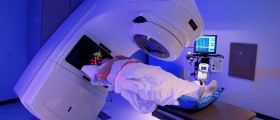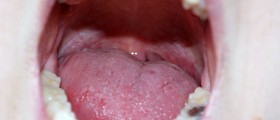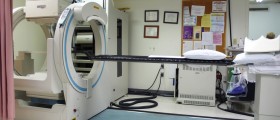
Esophageal cancer is a cancer that affects esophagus. Esophagus is an organ that of a muscular tube through which food passes from the pharynx to the stomach. The word esophagus is derived from the Latin and Greek word oisophagos, and literally translates s the "entrance for eating." Any kind of malignancy affecting this about 25–30 cm long tube that connects the mouth to the stomach is considered esophageal cancer. Esophageal cancer comes in many different forms. Two main types are squamous cell cancer that counts for about approx 90-95% of all esophageal cancer worldwide, and adenocarcinoma with 50-80% of all esophageal cancer in the United States.
Causes of esophageal cancer
There is no single one cause of esophageal cancer. Like all other types of cancer, this one is also associated with numerous risk factors. The most important factor is age, since the most people affected with this disease are over 60 years. This cancer is also more common in men, and especially in those individuals who have family history of cancers.
If a person smokes or uses alcohol excessively, he or she may be at increased risk of esophageal cancer. Certain medical conditions are also linked to this disease, including Gastroesophageal reflux disease (GERD) and its resultant Barrett's esophagus, Human papillomavirus, Plummer-Vinson syndrome, Coeliac disease, Tylosis and Howel-Evans syndrome.
Treatment for esophageal cancer
Modern science has provided many successful types of treatment for esophageal cancer. The exact kind of treatment is chosen based on the global clinical image, stage of the disease, general condition of the patient, and other underlying diseases. The starting point of the treatment is to ensure adequate nutrition and to maintain proper dental care.
Depending on the symptoms, patients may need and esophageal stent, which allows swallowing and feeding. This will also reduce the risk of aspiration pneumonia, which is a bronchopneumonia that develops following the entrance of foreign materials to the bronchial tree (food, saliva, or nasal secretions)
In some cases, patients will have to undergo a surgery, also known as esophagectomy. This operation is actually the removal of a segment of the esophagus.
Some patients may benefit from laser therapy, which uses a light to destroy tumor cells in the treated area. Chemotherapy is another option and it is usually given every three weeks, and sometimes following the surgery. Radiotherapy was once popular method of treatment, usually given after the surgery or after the chemotherapy. Today doctors prefer some other treatment options.

















Your thoughts on this
Loading...